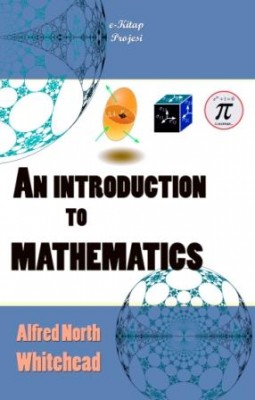More Search Results...
Alfred North Whitehead, (1861 – 1947) was an English mathematician and philosopher. He is best known as the defining figure of the philosophical school known as process philosophy, which today has found application to a wide variety of disciplines, including ecology, theology, education, physics, biology, economics, and psychology, among other areas.
In his early career Whitehead wrote primarily on mathematics, logic, and physics. His most notable work in these fields is the three-volume Principia Mathematica (1910–13), which he co-wrote with former student Bertrand Russell. Principia Mathematica is considered one of the twentieth century’s most important works in mathematical logic, and placed 23rd in a list of the top 100 English-language nonfiction books of the twentieth century by Modern Library.
Beginning in the late 1910s and early 1920s, Whitehead gradually turned his attention from mathematics to philosophy of science, and finally to metaphysics. He developed a comprehensive metaphysical system which radically departed from most of western philosophy.
Whitehead argued that reality consists of events rather than matter, and that these events cannot be defined apart from their relations to other events, thus rejecting the theory that reality is fundamentally constructed by bits of matter that exist independently of one another. Today Whitehead’s philosophical works – particularly Process and Reality – are regarded as the foundational texts of process philosophy.
Whitehead’s process philosophy argues that “there is urgency in coming to see the world as a web of interrelated processes of which we are integral parts, so that all of our choices and actions have consequences for the world around us.” For this reason, one of the most promising applications of Whitehead’s thought in recent years has been in the area of ecological civilization and environmental ethics pioneered by John B. Cobb, Jr.
A Treatise on Universal Algebra:
In A Treatise on Universal Algebra (1898) the term “universal algebra” had essentially the same meaning that it has today: the study of algebraic structures themselves, rather than examples (“models”) of algebraic structures.
Whitehead credits William Rowan Hamilton and Augustus De Morgan as originators of the subject matter, and James Joseph Sylvester with coining the term itself.
An Introduction to Mathematics
The study of mathematics is apt to commence in disappointment. The important applications of the science, the theoretical interest of its ideas, and the logical rigour of its methods, all generate the expectation of a speedy introduction to processes of interest. We are told that by its aid the stars are weighed and the billions of molecules in a drop of water are counted. Yet, like the ghost of Hamlet's father, this great science eludes the efforts of our mental weapons to grasp it | 'Tis here, 'tis there, 'tis gone" | and what we do see does not suggest the same excuse for illusiveness as sufficed for the ghost, that it is too noble for our gross methods. A show of violence," if ever excusable, may surely be offered" to the trivial results which occupy the pages of some elementary mathematical treatises.
More info →




























